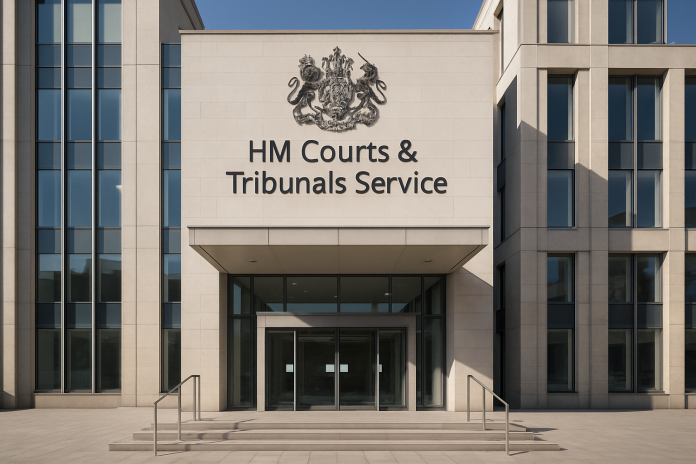His Majesty’s Courts and Tribunals Service (HMCTS) launches strategic AI pilots targeting court transcription, judgment anonymisation, and case management search capabilities as the UK justice system modernises operations while preserving human judgment oversight.
“Every AI system we deploy must demonstrably improve ways of working,” stated HMCTS Chief Technology Officer Gary O’Reilly, emphasising practical applications over technology adoption for its own sake. The initiative positions HMCTS at the forefront of judicial technology transformation across the UK’s court system.
AI-Enhanced Court Operations Take Centre Stage
HMCTS has initiated pilots across three core areas: AI-enhanced transcription services, automated judgment anonymisation, and refined search functions within existing case management systems. These capabilities address specific operational challenges faced by legal professionals in efficiently processing and accessing case information.
The transcription enhancement aims to reduce the burdens of manual court reporting while maintaining the accuracy standards required for legal proceedings. Meanwhile, judgment anonymisation tools will streamline the process of preparing court decisions for public access while protecting sensitive information.
Strategic Implementation Framework Prioritises Testing
Rigorous testing protocols precede any AI system deployment within HMCTS operations. According to O’Reilly, this approach ensures AI systems support rather than replace human discretion in judicial processes, maintaining public trust in court proceedings.
The implementation strategy is closely aligned with the Ministry of Justice’s broader AI action plan, incorporating comprehensive review processes that involve judges, HMCTS staff, and external stakeholders. This collaborative approach aims to establish sector-wide best practices for the adoption of legal technology.
Legal Sector AI Adoption Remains Cautious Despite Opportunity
Recent studies indicate approximately 40% of law firms currently experiment with AI technologies, yet only 17% report fully integrated AI strategies. This hesitancy reflects broader concerns within the legal sector about the reliability of technology and professional responsibility standards.
However, legal professionals are increasingly recognizing that avoiding engagement with AI could limit career advancement opportunities. HMCTS’s systematic approach provides a potential model for responsible AI adoption across the justice system.
Cross-System Collaboration Drives Standards Development
O’Reilly emphasises the importance of collaboration across the entire justice system for effective AI adoption. HMCTS commits to sharing pilot findings and working with advocacy groups to establish comprehensive best practices for legal AI implementation.
The agency’s strategy includes ongoing stakeholder engagement to ensure AI applications align with broader justice system objectives while addressing ethical concerns about bias and fairness in automated decision support.
For Business Leaders
- Evaluate integration opportunities: Review current AI applications and identify specific operational challenges where AI could add measurable value.
- Invest in comprehensive training: Ensure legal teams understand both AI capabilities and associated risks to leverage benefits effectively.
- Implement rigorous testing protocols: Align AI rollouts with exhaustive evaluation processes to secure stakeholder trust and operational efficiency.
- Engage collaborative partnerships: Partner with technology providers and industry peers to develop shared AI standards and implementation practices.
- Address ethical compliance: Monitor AI systems for potential biases, ensuring automated decisions remain fair and legally defensible.




